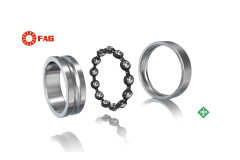Common Chemical Incompatibilities of Silicone O-Rings
Silicone O-rings, known for their versatility and resilience, can face challenges when exposed to certain chemical environments. Here’s a detailed overview of the specific substances to which silicone O-rings are typically not resistant, along with potential solutions to mitigate these issues.
1. Strong Acids
- Examples: Sulfuric acid, hydrochloric acid, nitric acid.
- Impact: Silicone is generally not compatible with strong acids, which can cause rapid degradation, swelling, or loss of elasticity.
- Solution: For applications involving acidic environments, consider using fluorocarbon (FKM) or perfluoroelastomer (FFKM) materials that offer better resistance.
2. Strong Bases
- Examples: Sodium hydroxide (lye), potassium hydroxide.
- Impact: Exposure to strong alkaline solutions can lead to the breakdown of silicone compounds, resulting in seal failure.
- Solution: Similar to strong acids, switching to materials like FKM can enhance resistance to basic conditions.
3. Organic Solvents
- Examples: Acetone, toluene, methanol, and ethanol.
- Impact: These solvents can swell and weaken silicone O-rings, compromising their sealing capabilities.
- Solution: Assess the chemical exposure and opt for materials that are specifically designed for solvent resistance.
4. Ozone and UV Radiation
- Impact: Prolonged exposure to ozone or UV light can lead to surface cracking and degradation of silicone materials.
- Solution: Use UV-resistant silicone formulations or apply protective coatings to mitigate this effect in outdoor applications.
5. Hydrocarbon Fuels
- Examples: Gasoline, diesel, and certain oils.
- Impact: While silicone can resist some hydrocarbons, prolonged contact with certain fuels can cause degradation over time.
- Solution: For fuel applications, selecting specialized O-ring materials such as Nitrile (NBR) or Hydrogenated Nitrile (HNBR) may be more effective.
6. Certain Cleaning Agents
- Examples: Chlorinated solvents, such as perchloroethylene.
- Impact: These substances can lead to swelling and loss of integrity in silicone materials.
- Solution: Ensure compatibility with cleaning agents by consulting material safety data sheets (MSDS) before use.
Conclusion
Silicone O-rings can be an excellent sealing solution in many applications, but their performance can be significantly affected by exposure to certain chemicals. By understanding these incompatibilities and selecting appropriate alternative materials when necessary, users can ensure reliable sealing in challenging environments.
For specialized applications or further assistance, consult with a supplier knowledgeable in material compatibilities, and consider exploring options like MVQ GRN silicone O-rings available at simmering.pl, which are produced to meet demanding specifications.




Leave a Reply Cancel Reply